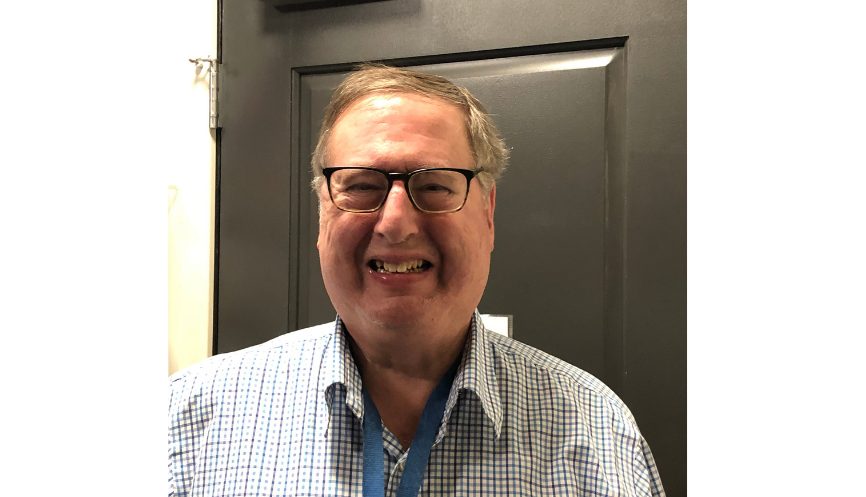Squirrel Hill residents might recognize David Dickman from the Murray Avenue Giant Eagle, where he has been employed as a bagger for 23 years. David is a member of Poale Zedeck, a resident of Krause Commons on Murray Avenue, a participant in Life’sWork classes, and a participant in Jewish Residential Services’ supportive living program. To say he is a staple in the Squirrel Hill community is not an overstatement.
David explains, “I know a lot of the people from Squirrel Hill, and they know me. Squirrel Hill is my home base.”
What some people who recognize David might not know is that he lives with a mental health diagnosis that has been persistent and severe for much of his life. The activities and programs in which David participates are necessary for him to live a full life and receive the support he needs. David’s job at Giant Eagle is essential to providing structure in David’s life.
His job gives him a sense of dignity, accomplishment, and responsibility. “I get depressed some days. If I didn’t have work, I wouldn’t know what to do. It is important for me to work. I don’t want to only take, but I want to give. Helping other people helps me,” said David.
David’s appreciation for his job is not surprising, considering national organizations like NAMI report people with a mental health diagnosis who are employed for a meaningful length of time report improved self-esteem and symptom management. Part of David’s success finding and keeping employment comes from a job coach who assists him with goals, challenges, and planning.
Although nearly 60 percent of the seven million people receiving public mental health services nationwide want to work, less than two percent receive supported employment opportunities such as job coaching and community-based services. Finding work can be overwhelming for anyone; however, people with psychiatric disabilities face additional challenges due to their symptoms. Without supported employment opportunities, a person with a mental health diagnosis is less likely to find, keep, and be successful at a job.
It is David’s hope that employers throughout the city and beyond recognize that there are people with disabilities who want to work, and who are valuable to the workplace. “People with disabilities have challenges just like anyone else. They are trying to overcome their disabilities to concentrate on the job,” said David.
As for what he thinks people with disabilities need to know about finding employment, “I think people with disabilities need someone to work with them to realize what they can do. It has helped me. A job can be a springboard to other opportunities.”
To learn more about the inclusion of people of all abilities in the workplace, click here to sign up for a free webinar being held on Monday, February 28th at 5:30pm.
